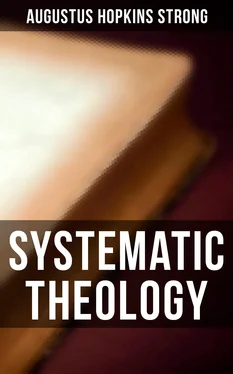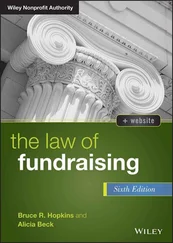3. The attributes belong to the divine essence as such. They are to be distinguished from those other powers or relations which do not appertain to the divine essence universally.
The personal distinctions (proprietates) in the nature of the one God are not to be denominated attributes; for each of these personal distinctions belongs not to the divine essence as such and universally, but only to the particular person of the Trinity who bears its name, while on the contrary all of the attributes belong to each of the persons.
The relations which God sustains to the world (predicata), moreover, such as creation, preservation, government, are not to be denominated attributes; for these are accidental, not necessary or inseparable from the idea of God. God would be God, if he had never created.
To make creation eternal and necessary is to dethrone God and to enthrone a fatalistic development. It follows that the nature of the attributes is to be illustrated, not alone or chiefly from wisdom and holiness in man, which are not inseparable from man's nature, but rather from intellect and will in man, without which he would cease to be man altogether. Only that is an attribute, of which it can be safely said that he who possesses it would, if deprived of it, cease to be God. Shedd, Dogm. Theol., 1:335—“The attribute is the whole essence acting in a certain way. The centre of unity is not in any one attribute, but in the essence. … The difference between the divine attribute and the divine person is, that the person is a mode of the existence of the essence, while the attribute is a mode either of the relation , or of the operation , of the essence.”
4. The attributes manifest the divine essence. The essence is revealed only through the attributes. Apart from its attributes it is unknown and unknowable.
But though we can know God only as he reveals to us his attributes, we do, notwithstanding, in knowing these attributes, know the being to whom these attributes belong. That this knowledge is partial does not prevent its corresponding, so far as it goes, to objective reality in the nature of God.
All God's revelations are, therefore, revelations of himself in and through his attributes. Our aim must be to determine from God's works and words what qualities, dispositions, determinations, powers of his otherwise unseen and unsearchable essence he has actually made known to us; or in other words, what are the revealed attributes of God.
John 1:18—“No man hath seen God at any time; the only begotten Son, who is in the bosom of the Father, he hath declared him” ; 1 Tim. 6:16—“whom no man hath seen, nor can see” ; Mat. 5:8—“Blessed are the pure in heart: for they shall see God” ; 11:27—“neither doth any man know the Father, save the Son, and he to whomsoever the Son willeth to reveal him.” C. A. Strong: “Kant, not content with knowing the reality in the phenomena, was trying to know the reality apart from the phenomena; he was seeking to know, without fulfilling the conditions of knowledge; in short, he wished to know without knowing.” So Agnosticism perversely regards God as concealed by his own manifestation. On the contrary, in knowing the phenomena we know the object itself. J. C. C. Clarke, Self and the Father, 6—“In language, as in nature, there are no verbs without subjects, but we are always hunting for the noun that has no adjective, and the verb that has no subject, and the subject that has no verb. Consciousness is necessarily a consciousness of self. Idealism and monism would like to see all verbs solid with their subjects, and to write ‘I do’ or ‘I feel’ in the mazes of a monogram, but consciousness refuses, and before it says ‘Do’ or ‘Feel’ it finishes saying ‘I.’ ” J. G. Holland's Katrina, to her lover: “God is not worshiped in his attributes. I do not love your attributes, but you. Your attributes all meet me otherwhere, Blended in other personalities, Nor do I love nor do I worship them, Nor those who bear them. E'en the spotted pard Will dare a danger which will make you pale; But shall his courage steal my heart from you? You cheat your conscience, for you know That I may like your attributes. Yet love not you.”
III. Methods of determining the divine Attributes.
Table of Contents
We have seen that the existence of God is a first truth. It is presupposed in all human thinking, and is more or less consciously recognized by all men. This intuitive knowledge of God we have seen to be corroborated and explicated by arguments drawn from nature and from mind. Reason leads us to a causative and personal Intelligence upon whom we depend. This Being of indefinite greatness we clothe, by a necessity of our thinking, with all the attributes of perfection. The two great methods of determining what these attributes are, are the Rational and the Biblical.
1. The Rational method. This is threefold:—(a) the via negationis, or the way of negation, which consists in denying to God all imperfections observed in created beings; (b) the via eminentiæ, or the way of climax, which consists in attributing to God in infinite degree all the perfections found in creatures; and (c) the via causalitatis, or the way of causality, which consists in predicating of God those attributes which are required in him to explain the world of nature and of mind.
This rational method explains God's nature from that of his creation, whereas the creation itself can be fully explained only from the nature of God. Though the method is valuable, it has insuperable limitations, and its place is a subordinate one. While we use it continually to confirm and supplement results otherwise obtained, our chief means of determining the divine attributes must be
2. The Biblical method. This is simply the inductive method, applied to the facts with regard to God revealed in the Scriptures. Now that we have proved the Scriptures to be a revelation from God, inspired in every part, we may properly look to them as decisive authority with regard to God's attributes.
The rational method of determining the attributes of God is sometimes said to have been originated by Dionysius the Areopagite, reputed to have been a judge at Athens at the time of Paul and to have died AD 95. It is more probably eclectic, combining the results attained by many theologians, and applying the intuitions of perfection and causality which lie at the basis of all religious thinking. It is evident from our previous study of the arguments for God's existence, that from nature we cannot learn either the Trinity or the mercy of God, and that these deficiencies in our rational conclusions with respect to God must be supplied, if at all, by revelation. Spurgeon, Autobiography, 166—“The old saying is 'Go from Nature up to Nature's God.' But it is hard work going up hill. The best thing is to go from Nature's God down to Nature; and, if you once get to Nature's God and believe him and love him, it is surprising how easy it is to hear music in the waves, and songs in the wild whisperings of the winds, and to see God everywhere.” See also Kahnis, Dogmatik, 3:181.
IV. Classification of the Attributes.
Table of Contents
The attributes may be divided into two great classes: Absolute or Immanent, and Relative or Transitive.
By Absolute or Immanent Attributes, we mean attributes which respect the inner being of God, which are involved in God's relations to himself, and which belong to his nature independently of his connection with the universe.
By Relative or Transitive Attributes, we mean attributes which respect the outward revelation of God's being, which are involved in God's relations to the creation, and which are exercised in consequence of the existence of the universe and its dependence upon him.
Читать дальше












